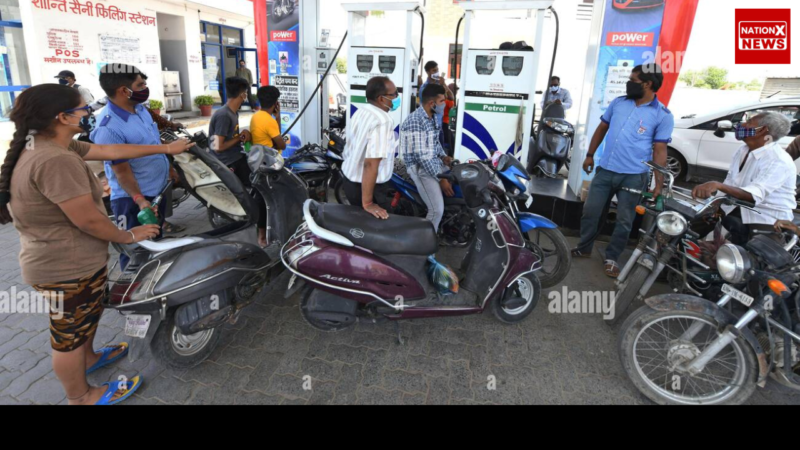A more challenging task than driving on Indian roads is finding a place to park. And, with vehicles soaring, the situation only stands to worsen.
No wonder when experts work on a solution to counter India’s parking woes, they often talk of a complete overhaul of the present system. While starting afresh is a near-impossible feat, many urbanists and city planners have turned towards digital parking solutions, given the huge traffic of vehicles and limitations of the parking infrastructure.
However, specially drafted parking policies will be a prerequisite for the effective deployment of any such smart parking technology.
Until then, an Indian motorist will keep driving for around 20 minutes on average to get a suitable parking spot (IBM figures). And, the country will continue topping the TomTom Traffic Index list with cities like Mumbai, New Delhi, Bengaluru, and Pune infamous for heavy congestion.
With digital parking solutions, the scenario is fast changing.
What is a digital parking system?
A digital parking system relays real-time data to motorists to spot vacant parking lots at their preferred locations.
Think of this system as a parking assistant that lets you know of available parking spots ahead of time. Digital parking applications combine hard techs such as sensors and cameras, and soft tech like parking management applications, consumer and operator apps, AI, and other app interfaces to make parking swift and stress-free.
The primary aim of digital or smart parking is to automate the time a driver spends physically searching for a slot and paying for it. Not many know this, but one of the primary causes behind traffic congestion is drivers circling to find parking slots.
Therefore, an automatic parking solution can hugely benefit such individuals on the road. It will also promote optimal usage of parking space inside lots, improving lot owners’ revenue.
Benefits of the digital parking system in India
Even in its emerging stage, the new-age digital parking system has relatively streamlined unstructured parking in India. By introducing technology to traditional ways of parking management, many parking facilities have experienced reduced costs, greater transparency, and higher revenue.
Further, parking lot owners can use digital solutions to levy dynamic pricing, which was impossible without technology. Surge pricing based on the time of day ensures that drivers pay a fair fare. This practice reaps lot owners and city authorities economic benefits.
When it comes to motorists, digital parking has an abundance of benefits to offer.
Benefits to motorists
A digital parking solution helps commuters search and find a suitable spot to park through real-time information about parking availability. A commuter may receive this information either on their smartphone or any other IoT-linked device, with a visual interface on the vehicle.
When it comes to parking a vehicle, a general concern for safety and security is always at the back of the mind. A digital parking solution makes leaving your car inside a lot even safer by using various monitoring tools while recording all actions at critical junctures like entry, exit, etc., within a parking garage.
To add to all the benefits listed above, smart or digital parking solutions save drivers and riders a substantial amount of time by allowing cashless payments. While specific digital parking systems will enable you to pre-book, others will let you swish past and pay the tariff later through mobile apps or RFID tags.
These cashless and touchless systems are also attuned to dynamic pricing and display different fares to individuals if applicable.
Benefits to parking businesses and authorities
A modern digital parking system can statistically analyse parking data that enables public and private players to resolve the overuse or underuse of parking infrastructure.
If an area has more parking lots than the demand, authorities can use that space for other public benefits like conveniences and parks.
The digital parking system allows the lot or garage owner access to all transaction details without any middle-men or subordinate managers’ involvement. This promotes overall transparency, thus decimating the chance of revenue loss.
Besides, the technology helps track illegal parking and other parking-related violations by relaying pre-recorded data and real-time analytics to enforcement authorities. Therefore, using parking tech for surveillance not only reduces mismanagement but also helps track parking operations within the lot.
The road ahead: future parking scenario in India
When smart parking solutions come a full circle, Indian motorists will witness a fall in traffic congestion. Using digital parking solutions, a driver — before leaving their home — will log into a web or mobile portal to receive recommendations of available parking spaces closest to their destination.
They will also pre-book and pre-pay for a slot through an integrated payment system to save the usual rigours associated with the parking routine. Once the motorist reaches their chosen parking spot, the system will identify the car and issue an electronic ticket. The parking smartphone app will then navigate the driver into their selected parking space and also help them exit the lot, eventually.
If the driver did not pre-pay for their space, the system would automatically debit the amount from their app account once they step out of the garage. The system will also issue the user a digital receipt. This way, motorists get a touchless, speedy, safe, and smart parking experience.
Food for thought
Before we leave you to pour over this smart phenomenon — all set to revolutionise the way we park — know that the technology for smart parking already exists.
A slew of smart parking startups has emerged in recent years, offering IoT-enabled digital parking solutions across several global locations.
With the parking revolution all set to begin, you can bid adieu to traffic and parking-related woes forever.






